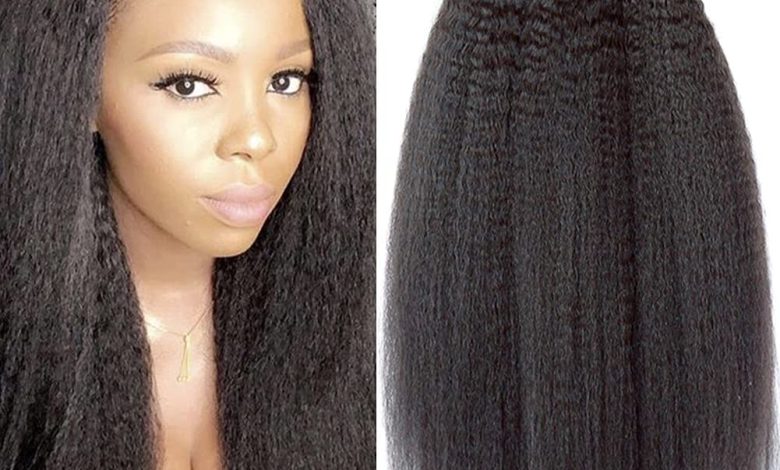
There are countless options available if you’re looking for kinky hair extensions. From yaki hair to virgin human hair, Remy hair, and premium fiber hair. Your preference for texture will determine which choice you pick.
However, if you are still unsure about your choice of natural hair extension or are considering yaki hair, Before making your next hair purchase, use this guide as your starting point to learn everything you need to know about yaki hair.
What is Yaki Hair?
Remy hair can occasionally be mistaken for yaki hair, which is pretty simple. Yaki hair refers to the texture of a hair extension, whereas Remy hair is a grade of hair, the finest quality of human hair.
This Yaki hair is for naturals who are committed to keeping their hair extensions and wigs looking as natural as possible. Yaki hair, which can be coarse or wavy, is textured hair intended to resemble the Caribbean or Afro Caribbean hair that has been chemically relaxed.
Yaki hair is never sourced from a single donor but from various places. Many people prefer Yaki hair extensions who have relaxed or straightened hair and want to add length and volume to it or attain a seamless, natural look and feel. Yaki hair does not appear as straight and sleek as Remy hair. It comes in artificial, non-Remy, and Remy varieties.
Instead of a single donor, non-Remy hair is obtained from various sources, and the cuticles are frequently damaged in the collection process.
Because it is less likely to shed or tangle, Remy Yaki hair is the ideal kind to buy. The yaki hair is the perfect option if you’re seeking natural hair extensions that complement your 4b/4c texture.
Is Yaki Hair Human Hair?
Human hair texture is also offered in yaki hair.
What is Yaki Virgin Hair?
A natural hair extension that has never undergone any processing is known as virgin hair. This indicates that the hair was not treated with dye, chemicals, or perms before being donated. There is no use of blow dryers or other heated styling tools.
Each hair in virgin hair is the same length from root to tip and still contains all of its cuticles. Yaki hair has been processed to imitate that kinky texture, while virgin hair is unprocessed hair. This implies that having virgin yaki hair is not conceivable. Yaki hair is never virgin hair; you can only have yaki hair.
Types of Yaki Hair
Silky Yaki
The lightest or most smooth texture of yaki hair is silky yaki, also known as yaki straight. This hair’s texture resembles yours slightly in that it’s bone straight and appears to have recently been relaxed, flat ironed, or straightened.
Regular Yaki
Regular hair is the most popular variety of yaki hair. Although this yaki appears calm and straight, it is not smooth; rather, it still gives the appearance of having through two or three washes to get the spa-like look. It has the appearance of someone who had a recent perm two or three days prior. Your hair will get more volume from the normal yaki.
Kinky Yaki
The kinky hair resembles natural Afro or African American hair that has been blow-dried. It has a fuller structure and resembles naturally flat-ironed or pressed hair.
Coarse Yaki
The coarse, Coarse Yaki hair has never been relaxed or permed, giving it the distinctive appearance of natural African hair. Coarse Yaki has not undergone chemical processing and can be either wavy or curly in texture.
How to take care of yaki hair
- At least once per week, wash with a shampoo free of sulfates.
- You should avoid massaging your yaki hair.
- Rinse.
- Comb hair beginning at the tips and moving up to the root after applying a hydrating conditioner.
- Thoroughly rinse.
- Let it dry naturally.
- Alternately, you could just co-wash.
Yaki hair extensions can be employed for various hairstyles and will last a lifetime if you take good care of them. Yaki hair can be styled into quick and simple looks like a half updo, buns, or a loose ponytail.